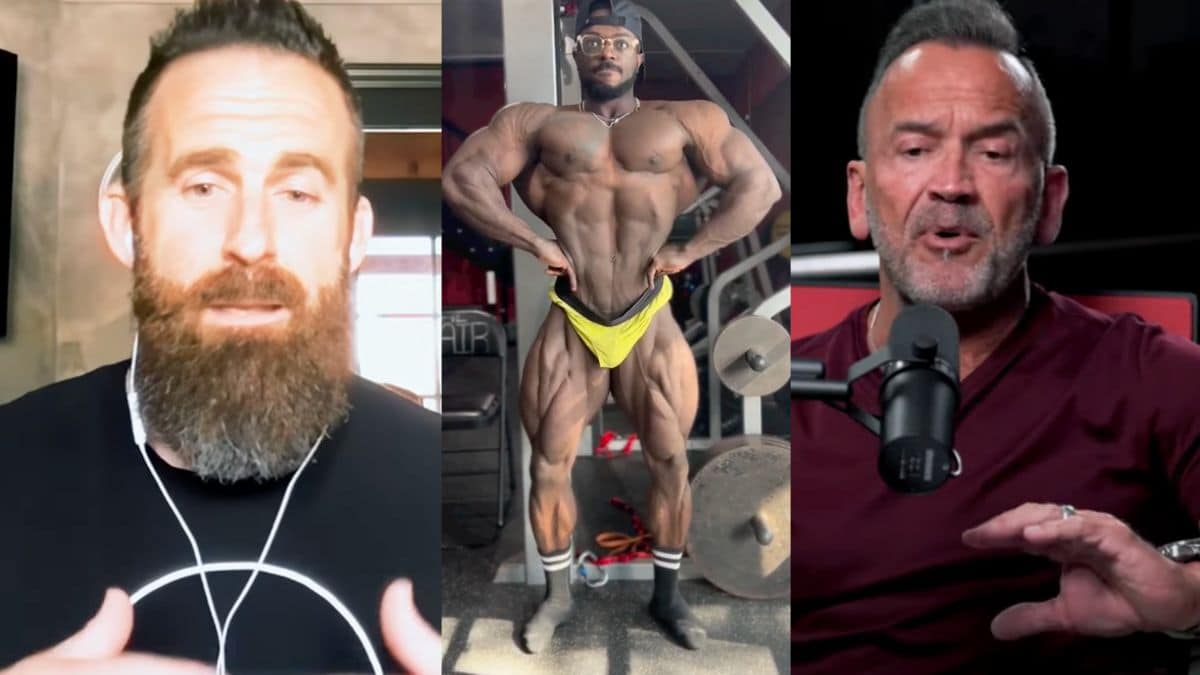
Fitness and bodybuilding coach Joe Bennett has acquired a wealth of knowledge over the years, having trained athletes and Hollywood actors like Dave Bautista. In a recent episode of the Lee Labrada Show, Bennett joined Labrada for a detailed discussion about genetics, exercise selection, and injury prevention.
As a bodybuilding veteran, Lee Labrada left a memorable impact on the Men’s Open division, where he used aesthetics, conditioning, and artistic posing to assert himself as one of the best. Even though he was unable to procure a Mr. Olympia title, Labrada was a perennial contender who placed in the top four at the show for seven consecutive years.
Joe Bennett on the other hand, is a decorated trainer, who helped shape several top-tier IFBB Pro League bodybuilders, some of which include the inaugural Women’s Physique Olympia Dana Linn-Bailey, two-time Arnold Classic winner Terrence Ruffin, and German star Urs Kalecinski.
With their combined knowledge, Labrada and Bennett tackled ‘common sense’ practices in bodybuilding today. In addition, they explained the role genetics play when determining which exercises are best suited for certain individuals.
Joe Bennett, Lee Labrada on Exercise Selection & Full Range of Motion: ‘Not Everyone Has Short Femurs Like Tom Platz’
Bennett believes common sense guidelines must be established to build muscle, like developing an ‘internal response’ while training.
“If you’re anyone outside of someone whose sport is lifting weights then you have to realize the whole thing of weight lifting is to have an internal response. There should be some common sense guidances, I’m choosing this exercise to train my chest, train my shoulders, I should feel it in my chest, I should feel it the right way in my shoulders.
So, if I’m doing an exercise that’s a chest exercise and all I feel is my triceps and shoulders, it’s not a chest exercise for you. Just because it’s written in a book for chest exercise, but your body doesn’t understand that,” said Joe Bennett.
He stressed that genetics factor into training technique.
“It’s [genetics] a pretty big thing. I always joke with people, in the industry, there’s trainers that will really sell things that are customized. Obviously, there’s a big component of truth there because different exercises work for different people.
At the same time, if I have somebody coming in and it’s day 1, I have some ideas, like I know these are going to be some good options to start with right? Then, obviously, even if this works for 90% of people, I have to realize that it might not benefit this one person if they’re that 10% or even if they’re that 1%, whatever it is. So, there’s definitely some differences.”
Bennett shared that Tom Platz had short femurs which enabled him to achieve a better range of motion when performing squats.
“Limb length, I mean some people, again, you look at someone like Tom Platz and everyone looks how he squats, and that’s what everybody thinks about when they want to squat. There’s people that because of their proportions that they have instead of having Tom Platz’s little tiny short femurs, they’ve got these long legs and they might have a short torso. They literally are like an accordion when they try to squat. Everything folds as opposed to there being a nice pretty straight up and down thing,” Bennett said.
“Between limb length, there is some structural differences if we look at different joints, how your shoulder sits in the side of the scapula, how your femur fits in your pelvis. There are differences person to person. There are for sure people that are built better for things than others. There was a reason Tom Platz could squat what he could. The world record bench pressers are built for bench pressing. It’s the same as a lot of things in life. It’s really important that there is some degree of customizing.”
Bennett on Injury Prevention: ‘Physical, Emotional, Mental Stress Play Into It’
As far as injuries are concerned, Bennett says if an exercise causes pain on a consistent basis, then it should be replaced with a different movement.
“That’s the joke amongst strength coaches [just don’t injure your athlete]. You’ve already got the genetic elite, they’ll do almost anything to put on muscle, just make sure they’re doing things – where again, you’re building them up, get them bigger, stronger, more resilient, because they’re likely to get injured on the field.”
Lastly, Bennett highlighted that injuries often occur when people are dealing with physical or psychological stress.
“There are lots of contributing factors, recovery goes into it, how people are when they come into the gym. We think about physical stress, but emotional stress, mental stress, all that can play into it. If I had to say the biggest thing, it honestly is poor exercise selection. Most injuries and there are some exceptions, but most injuries in the bodybuilding world, it’s repetitive stuff. People have signs where something starts to feel uncomfortable.”
“Most of those things [where people work through pain] as you and I both know, if you start to get something and you don’t change something and you keep going, it only goes one direction, it only gets worse.”
In addition to Bailey, Ruffin, and Kalecinski, Joe Bennett recently partnered with Brett Wilkin for an intense back workout. The ‘Hypertrophy Coach’ led Wilkin through the training session and offered up some useful tips. Wilkin is already qualified for the 2023 Mr. Olympia show after claiming gold at last year’s Bigman Weekend Pro contest.
Injury prevention and exercise selection remain widely discussed topics in bodybuilding. Given their expertise, Labrada and Bennett hope to inspire safer practices in the gym, not just for athletes but for people of all fitness levels.
RELATED: 10 Best Bodybuilding Coaches with Proven Track Records
